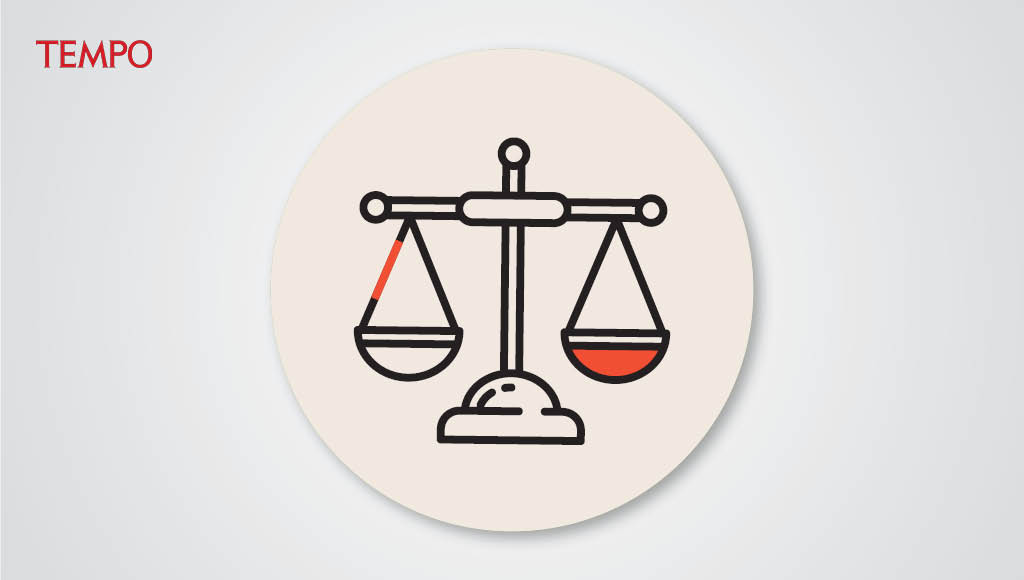Sexual Violence on the Blue Campus
Friday, March 28, 2025
UGM dismisses a lecturer involved in sexual assaults. The punishment needs to be publicized in order to bring justice to the victim.
arsip tempo : 174678270720.

GADJAH Mada University (UGM)—known as ‘the blue campus’—has punished a lecturer involved with sexual violence. In order to prevent a recurrence of this offense, the rectorate of the university in Yogyakarta should also announce the dismissal of the professor as a civil servant. It is expected that this will help the students who became his victims recover from their trauma.
On January 20, 2025, UGM Rector Ova Emilia announced that Edy Meiyanto had violated the lecturer code of ethics and the regulations on the prevention of sexual violence. UGM then dismissed him from his position as a lecturer. Unfortunately, his dismissal as a civil servant has not yet been announced. The cancer expert is still active on campus.
Meanwhile, his victims are finding it difficult to get over their trauma. The case involving Edy shows that there is a high incidence of sexual assaults on campuses. This campus sexual violence emergency has been ongoing for a long time, and is becoming increasingly concerning as each day passes. According to the National Commission on Violence Against Women (Komnas Perempuan), the education environment, including university campuses, is one of the places where this type of assault occurs frequently.
A 2021 survey by the Indonesian Women’s Association for Justice Legal Aid Foundation and Jakarta Feminist found that 57 percent of female students had experienced sexual harassment at university, both verbal and physical, including through online media. And 70 percent of the victims chose not to report the offenses out of fear that they would not be believed, uncertainty about the reporting procedures, or concern about the impact on their social and academic lives.
According to Komnas Perempuan, in 2024, there were 445,502 reported instances of violence against women. This was 9.7 percent higher than the previous year’s figure of 401,974 incidents. The 2024 figure represents the highest number of reported cases of sexual assault. The perpetrators were lecturers or other students.
Of these thousands of cases, there are still many victims who lack the courage to report because the perpetrators have considerable influence on campus. In response, in 2021, Minister of Education, Culture, Research and Technology Nadiem Makarim issued a regulation on preventing and responding to sexual violence in higher education.
Political will from rectorates is needed to prevent sexual assaults from continuing to occur on campus. The problem is that universities cover up cases of sexual violence in order to preserve their reputation. This is what happened with the cases at UGM.
And the campus-imposed ban on victims of sexual violence passing on information to journalists or individuals in non-governmental organizations is clearly wrong. The UGM rectorate should have a strategy to protect victims by providing counsellors and a good support system. These counselors provide a bridge for victims to speak out about their cases.
As a campus that has declared itself free of violence, UGM must not be halfhearted in responding to this case. The rector should include an extra clause to the regulations stating that alleged perpetrators cannot carry out public activities for a set period, such as speaking at seminars or being present on campus during the investigation. Empathy towards victims is important given the trauma they have suffered.
Another clause should give victims the right to obtain transparent information from universities about the way that the sexual violence they have suffered is being dealt with. If a victim wants a case to be handled outside campus, universities need to respect this and not be allowed to obstruct it.











